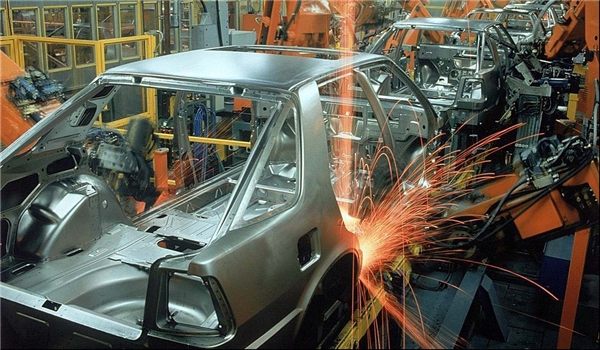
Iran, Syria to Jointly Manufacture Car

During the ceremony in Tehran to sign the agreement, al-Qadiri said some Iranian vehicles are currently being assembled in the Arab country, reassuring that industrial cooperation between Tehran and Damascus will increase in the post-war era.
“Although our car factories have sustained serious damage in the war, since the end of the war we have been endeavoring to help them restore their production to let Syria keep manufacturing vehicles. Currently, the production line for the Iranian car, Shaam, is working,” the Syrian official said on the sidelines of the ceremony.
“We are hopeful to see the Syrian nation’s final victory to restore jobs and employment in the country,” al-Qadiri added.
Iran is the major car maker in the Middle East region, and the country has many joint plants with other countries of the world.
Back in April, Azerbaijani Economy Minister Shahin Mustafayev said that a car plant, jointly owned by an Iranian and an Azerbaijani company, which is successfully operating in the Neftchala Industrial Park produced and sold more than 1,000 cars in 2018.
Iran is also mulling over plans to increase car-industry cooperation with the Ivory Coast.
Back in March, Iran’s giant car-maker Iran Khodro delivered its first consignment of 30 hybrid cars to Senegal in a ceremony held at Blaise Diagne International Airport in the West of the African country.
Back in February, it was reported that Iran Khodro had exported a first consignment of its Dena Plus cars to Senegal to be used in the African country’s police fleet.
The report said the exports would take place through IKCO’s joint venture company with the Senegalese government, known as SenIran. Senegal also re-exports the company’s cars to Guinea and Nigeria.
IKCO also exports vehicles to Russia, Syria, Turkey, Iraq, Azerbaijan, Ukraine, Egypt, Algeria, and Bulgaria.


Trump weighs using $2 billion in CHIPS Act funding for critical minerals

Codelco cuts 2025 copper forecast after El Teniente mine collapse

Electra converts debt, launches $30M raise to jumpstart stalled cobalt refinery

Barrick’s Reko Diq in line for $410M ADB backing

Abcourt readies Sleeping Giant mill to pour first gold since 2014

Nevada army depot to serve as base for first US strategic minerals stockpile

SQM boosts lithium supply plans as prices flick higher

Viridis unveils 200Mt initial reserve for Brazil rare earth project

Tailings could meet much of US critical mineral demand – study

Kyrgyzstan kicks off underground gold mining at Kumtor

Kyrgyzstan kicks off underground gold mining at Kumtor

KoBold Metals granted lithium exploration rights in Congo

Freeport Indonesia to wrap up Gresik plant repairs by early September

Energy Fuels soars on Vulcan Elements partnership

Northern Dynasty sticks to proposal in battle to lift Pebble mine veto

Giustra-backed mining firm teams up with informal miners in Colombia

Critical Metals signs agreement to supply rare earth to US government-funded facility

China extends rare earth controls to imported material

Galan Lithium proceeds with $13M financing for Argentina project

Kyrgyzstan kicks off underground gold mining at Kumtor

Freeport Indonesia to wrap up Gresik plant repairs by early September

Energy Fuels soars on Vulcan Elements partnership

Northern Dynasty sticks to proposal in battle to lift Pebble mine veto

Giustra-backed mining firm teams up with informal miners in Colombia

Critical Metals signs agreement to supply rare earth to US government-funded facility

China extends rare earth controls to imported material

Galan Lithium proceeds with $13M financing for Argentina project

Silver price touches $39 as market weighs rate cut outlook

















